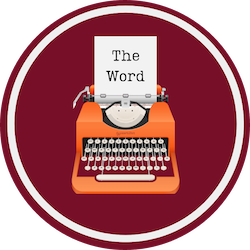Wartime: Understanding and Behavior in the Second World War
Winner of both the National Book Award for Arts and Letters and the National Book Critics Circle Award for Criticism, Paul Fussell's classic The Great War and Modern Memory remains one of the most original and gripping volumes ever written about the First World War. In its panoramic scope and poetic intensity, it illuminated a war that changed a generation and revolutionized the way we see the world. Now, in Wartime, Paul Fussell turns to the Second World War, the conflict in which he himself fought, to weave a more intensely personal and wide-ranging narrative. Whereas his former book focused primarily on literary figures, here Fussell examines the immediate impact of the war on soldiers and civilians. He compellingly depicts the psychological and emotional atmosphere of World War II by analyzing the wishful thinking and the euphemisms people needed to deal with unacceptable reality; by describing the abnormally intense frustration of desire and some of the means by which desire was satisfied; and, most importantly, by emphasizing the damage the war did to intellect, discrimination, honesty, individuality, complexity, ambiguity, and wit. Of course, no book of Fussell's would be complete without serious attention to the literature of the time. He offers astute commentary on Edmund Wilson's argument with Archibald MacLeish, Cyril Connolly's Horizon magazine, the war poetry of Randall Jarrell and Louis Simpson, and many other aspects of the wartime literary world. In this stunning volume, Fussell conveys the essence of that war as no other writer before him has.
Winner of both the National Book Award for Arts and Letters and the National Book Critics Circle Award for Criticism, Paul Fussell's classic The Great War and Modern Memory remains one of the most original and gripping volumes ever written about the First World War. In its panoramic scope and poetic intensity, it illuminated a war that changed a generation and revolutionized the way we see the world. Now, in Wartime, Paul Fussell turns to the Second World War, the conflict in which he himself fought, to weave a more intensely personal and wide-ranging narrative. Whereas his former book focused primarily on literary figures, here Fussell examines the immediate impact of the war on soldiers and civilians. He compellingly depicts the psychological and emotional atmosphere of World War II by analyzing the wishful thinking and the euphemisms people needed to deal with unacceptable reality; by describing the abnormally intense frustration of desire and some of the means by which desire was satisfied; and, most importantly, by emphasizing the damage the war did to intellect, discrimination, honesty, individuality, complexity, ambiguity, and wit. Of course, no book of Fussell's would be complete without serious attention to the literature of the time. He offers astute commentary on Edmund Wilson's argument with Archibald MacLeish, Cyril Connolly's Horizon magazine, the war poetry of Randall Jarrell and Louis Simpson, and many other aspects of the wartime literary world. In this stunning volume, Fussell conveys the essence of that war as no other writer before him has.
Winner of both the National Book Award for Arts and Letters and the National Book Critics Circle Award for Criticism, Paul Fussell's classic The Great War and Modern Memory remains one of the most original and gripping volumes ever written about the First World War. In its panoramic scope and poetic intensity, it illuminated a war that changed a generation and revolutionized the way we see the world. Now, in Wartime, Paul Fussell turns to the Second World War, the conflict in which he himself fought, to weave a more intensely personal and wide-ranging narrative. Whereas his former book focused primarily on literary figures, here Fussell examines the immediate impact of the war on soldiers and civilians. He compellingly depicts the psychological and emotional atmosphere of World War II by analyzing the wishful thinking and the euphemisms people needed to deal with unacceptable reality; by describing the abnormally intense frustration of desire and some of the means by which desire was satisfied; and, most importantly, by emphasizing the damage the war did to intellect, discrimination, honesty, individuality, complexity, ambiguity, and wit. Of course, no book of Fussell's would be complete without serious attention to the literature of the time. He offers astute commentary on Edmund Wilson's argument with Archibald MacLeish, Cyril Connolly's Horizon magazine, the war poetry of Randall Jarrell and Louis Simpson, and many other aspects of the wartime literary world. In this stunning volume, Fussell conveys the essence of that war as no other writer before him has.

